- Getting around Lijiang. Dont stay in the Old Towns more than 2 days, there is nothing to do. KRISS Oct 9, 2013 05:46
- 2013 Beijing Temple Fair BENNYLAU Feb 26, 2013 03:29
- Malaysian traveling from KUL - LAX vis Shanghai PVG ZATI_DY Jan 3, 2013 20:15
The Whisper-Tree Guidebook to Inner Mongolia
- Views: 4933
- |Vote: 1 0
- |Add to Favorites
- |Recommend to Friends
Getting Around
We follow the whispers of the locals, though it seems their advice is lonelier than the Lonely Planet’s. Accurate or not, it will wick onto anyone’s ears—and they don’t get many newbies willing to listen.
So we waited in the town square of Ba Shang town for the 12:00 bus that arrived at 3 pm. No matter—we whiled away our time ping ponging between the shady and the sunny side of the main drag. The shady side was cold, but had pool tables. The sunny side: white tiers of concrete steps and good people watching. Inbetween relays we’d pop in and ask anyone who seemed to know for an update on the bus.
“Patience” they’d intone, chuckling at the wayward foreigners who apparently had something better to do than volley between sun and shade. Schedules aren’t made to be kept around here. Time braids with the wind: things will happen when they happen. The horizon never changes.
Trippin'
Neither, it seems, does the transportation. Ba Shang town boasted at least a century’s worth of vehicles, from mule- or horse-drawn carts to Mercedes; from bicycles to motorized tricycles with flatbeds; from motorcycles to huge transport trucks and Lorries. We also witnessed an arc’s worth of animals including horses, dogs, rabbits, birds, goats and cats. Two fat black pigs rustled past us, hunting in the gutters for bits and pieces thrown out by more discerning palettes. The town was timeless. Nothing was out of place, and yet nothing would have wholly fit in the spangled cities to the south. The town was a mosaic of time and place, and we fit in just fine. Especially after three hours waiting, hovering like carrion birds, eager to devour more of the countryside.
Leg Room
When the bus did growl into town, we skidded to gather our things and throw them aboard. The bus stopped for mere seconds, and the villagers collectively coordinated to get us on board. “Don’t be late!” some yelled from shop thresholds while others flagged down the bus and arranged our things. This, as in small towns around the world, also appears timeless: everybody knows everybody’s business—and we were happy to have the extra help. There weren’t any available seats on the bus, but the driver happily arranged one of us on the belly of the spare tire, between him and the door, and for the rest of us he opened out folding stools and propped them into the aisle. Our things and our limbs folded into the 2 foot space for the 3 hour journey into the backcountry.
Country Road
We were headed for Duo Lun, a small cowboy town which we heard had yerts and horse riding and other cultural authenticities that were otherwise masked by China’s ubiquitous ‘modern’ concrete-and-reebar architectural style. As we drove, sunset licked the autumnal fields pregnant with haystacks and gathered crops. The hills swelled and the earth turned sandy. The black road rolled out like a lolling tongue. As we neared the town, the driver pulled over and told those of us without seats to get off the bus. It was illegal to enter the city carrying passengers without seats, so we got off and waited by the side of the road as the sun set. We had to wait for 25 minutes while the bus arrived at the station and dropped off the first round of passengers and then came back for us. In the meantime we climbed a nearby butte that overlooked the landscape and watched the sun go down. While the ground still hosted plentiful grasses and trees and plants, it was gritty and grainy and loose, and on the way back to catch the bus we got sucked into a mini-sandtrap, ankle deep in shifty sands. It’s desert country here.
Whispered Disappointment
Duo Lun, on the lip of Inner Mongolia, proved to be nothing more than a full hotel and a giant city square. As it turned out, the authenticity we were searching for was more than 100 kilometers outside town with a bus connection at an inconvenient time. So we spent the night in less-than-cozy accommodations, dined on soothing Mongolian Hot Pot rich with lamb and mushroom soup, and then woke before sunrise to catch the 6 am bus northward to Chi Feng, yet another Mongolian city of whispered attraction and authenticity.
To be sure we had seats, we arrived early and bought our tickets and then staked out our claim on the bus. I waited while the others went to buy breakfast, blowing my breath in the cold, until my friends came and joined me with hot baozi filled with lamb and hot Mongolian milk tea, which is salty and creamy and redolent of sheep. Ice encased the tree limbs and the fields glittered with frost as the sun rose. We stopped on the outskirts of town to pick up a family who spent a long time strapping their bags to the roof. It wasn’t until later we found out what was in their bags…
Whose Rights?
China’s not like other countries. Though the Chinese wouldn’t agree, by Western standards there’s a great deal of inhumane treatment towards animals. And what’s a foreigner to do, traveling in a country in which they are a guest, when they witness blatant and outright animal cruelty? Is it their responsibility to speak out? Or ought they keep quiet and not intrude on the cultural normalcies of another country? In most Western countries laws against animal cruelty were in place long ago—sometimes even before it was illegal to beat your spouse. There are organizations in place that ensure if cruelty is witnessed one simply needs to pick up the phone and the offenders are—worst case—thrown in jail. But not in China.
I wish I had a phone to pick up and someone to call on that bus on that morning a few hours outside Duo Lun. The family we had picked up spent so much time strapping their luggage to the roof because one of the bags they carried—a standard-sized canvas duffel bag—was filled with puppies. And, as we bumbled along the roads of Inner Mongolia, the bag flew off the roof, unbeknownst to the driver, and the puppies were lost.
What Isn't Included in the Guide Books
I felt sick. I wanted to lash out, scream and yell, fine that family, throw them in jail. But I didn’t do anything. I sat there, my hands balled into fists, quietly imagining over and over that bagful of puppies on the road somewhere, some perhaps still alive, some injured and whining, most probably dead from the impact, trapped together inside that bag on a highway.
Everyone on the bus knew what had happened when the family discovered their bag missing. And nobody said anything. Nobody protested or criticized. It seemed that nobody cared. Perhaps it seemed that I didn’t care—because I could do nothing but sit and breathe in the cigarette smoke filling the bus as that family laughed and played cards, quickly recovered from their loss.
But I couldn’t recover so quickly.



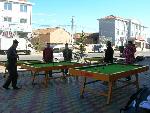
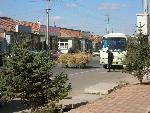
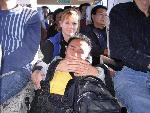
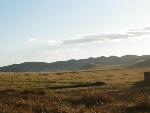
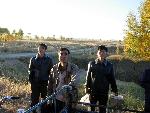
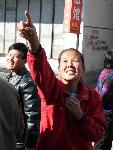
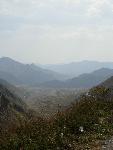
 Copyright © 1998-2026 All rights reserved.
Copyright © 1998-2026 All rights reserved.
1.
Nov 25, 2007 11:18 Reply
COLORWIND77 said:
Thank you for loving China and looking Chjna as your home.I really hope you are peaceful and happy everyday in China. I'm a Chinese guy and now I'm in Abu Dhabi and Dubai in UAE.
2.
Nov 16, 2007 03:18 Reply
ELLEN77 said:
Yes, the episode of your trip is really disappointing. I'm not clear if the transport of animals like this is legal in China. And some of affairs related to the abusing of animals do exist, and many people here also abhor those.